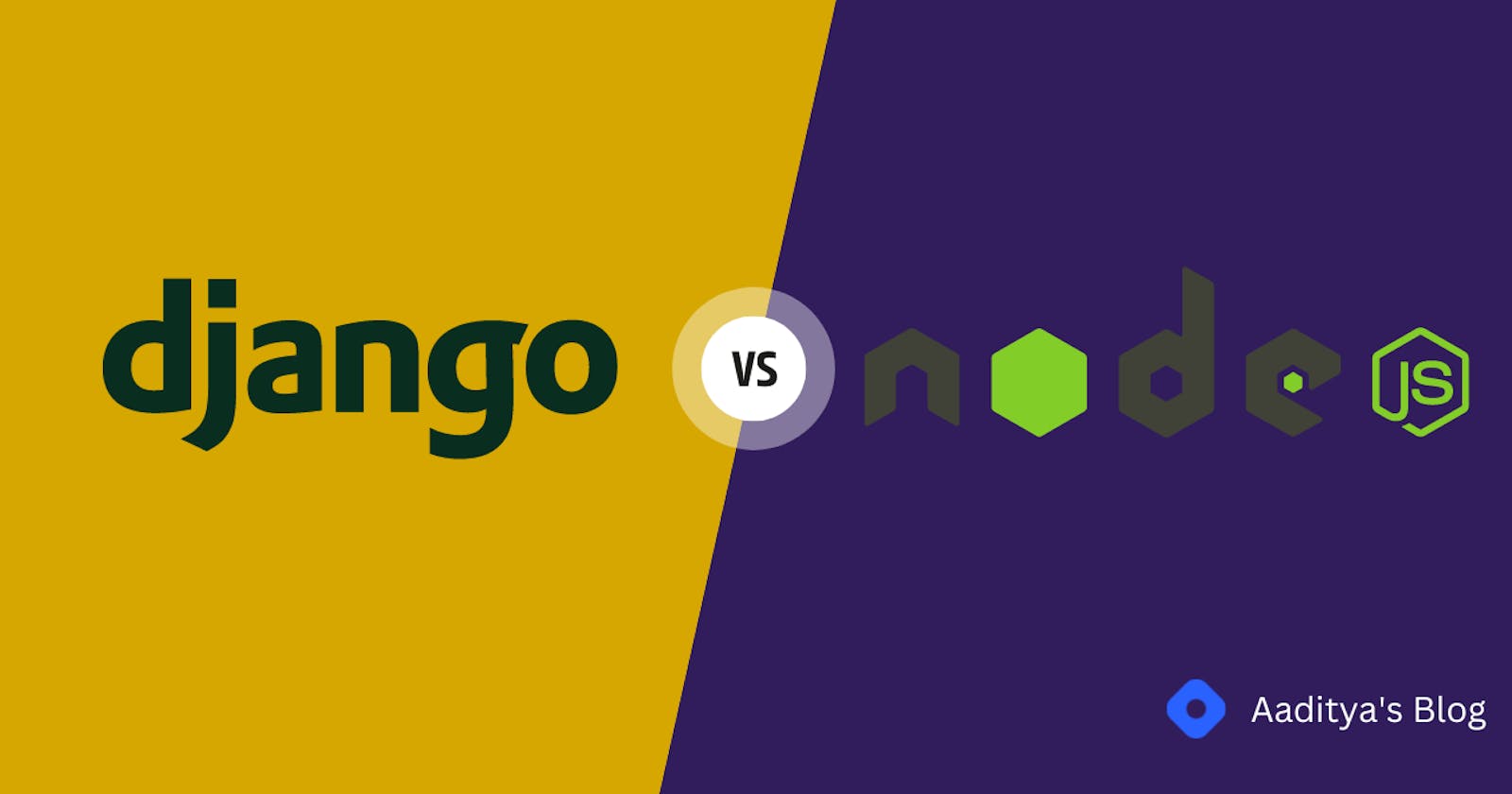Django and Node.js are two the most popular web development frameworks, each with their its own strengths and weaknesses.
So first, let's discuss about their functionalities,
Functionalities of Django and NodeJS:
Ecosystem: Node.js has a rich ecosystem of libraries and modules available through npm, while Django has a robust set of built-in features that require minimal third-party libraries.
- NodeJS is an asynchronous and single-threaded environment so that allows JavaScript to be executed on the server, Where Django team itself recommends that you use Python virtual environments*!*Scalability: Node.js is known for its ability to handle large volumes of traffic and scale well horizontally, while Django's scaling is typically vertical.

- Server-side Rendering: Django is more suited for server-side rendering and rendering dynamic content on the server.On the other hand, NodeJs is more suited for building real-time, event-driven applications and microservices.
Django has a wide range of functionality and syntax for building web applications, including database models, views, templates, and forms.
Node.js can be used for both backend and frontend development, allowing developers to build full-stack applications using a single language.
- Development Speed: Django has a reputation for being fast to develop with due to its built-in administration functionalities and ORM, while Node.js can be more flexible and allow for rapid prototyping.
Node.js is known for its rapid development capabilities, with features such as the npm package manager.
Where Django has their own "Functionalities", built-in features, rapid development tools, and scalable design it makes a great choice for projects that require fast development times without sacrificing performance or scalability.
- Community: Both technologies(Frameworks) have large and active communities, but the Python/Django community is more focused on enterprise-level development, while the Node.js community is more focused on web and app development.

So, it's all up to you there is no this vs that, good vs bad, django vs node. While both Django and Node.js have their own strengths and weaknesses, they are both the powerful tools for building modern web applications. The choice between them ultimately depends on the specific needs and requirements of a given project.
Most Popular Examples of software that built with Django:
- Instagram:
The most popular framework, Django were used to build the world’s most popular social media.
With their simplicity, it helped to establish excellent fundamentals of a platform that processes billions of media files on a daily basis.
The fact that such a ponderous app runs smoothly is the best proof of Django's reliability.
- YouTube:
One more legendary platform built with the Django combination. Just like Instagram, YouTube processes immense loads of interactive media data.
Actually, with all these 10-hour high-definition videos and similar content, these loads are even bigger.
- Dropbox:
One of the world’s most popular cloud storage has also been developed with Django. What is really exciting about this story is that owners of Dropbox wanted their platform to be built very fast.
Like, really fast.
With their simplicity and great efficiency, Django became a great solution to enabling the developers to launch Dropbox in record terms.
Most Popular Examples of software that built with Node.js:
- PayPal:
Node.js played a crucial role in building one of the world’s most popular e-wallets.
PayPal, a global payment system, required most maximum efficiency, so the developers decided to use Node.js for connecting the app’s backend with its frontend.
In particular, Node.js became the core technology for building the customer-facing part of this extremely complex high-load application.
- LinkedIn:
In the world of IT industry, it is most challenging or probably, even impossible to find any person who doesn’t know LinkedIn.
The world’s biggest business and employment social network is built with a broad list of technologies.
However, Node.js plays, probably, the most vital role in this ensemble. So, we may thank Node.js for the excellent stability and efficient performance of LinkedIn.
In Conclusion:
Finally, the choice between Django and Node.js is determined by the project's specific needs and requirements. Django may be a better choice if server-side rendering and enterprise-level development are top priorities. If real-time, event-driven applications and scalability are the most important considerations, Node.js may be the better choice.
